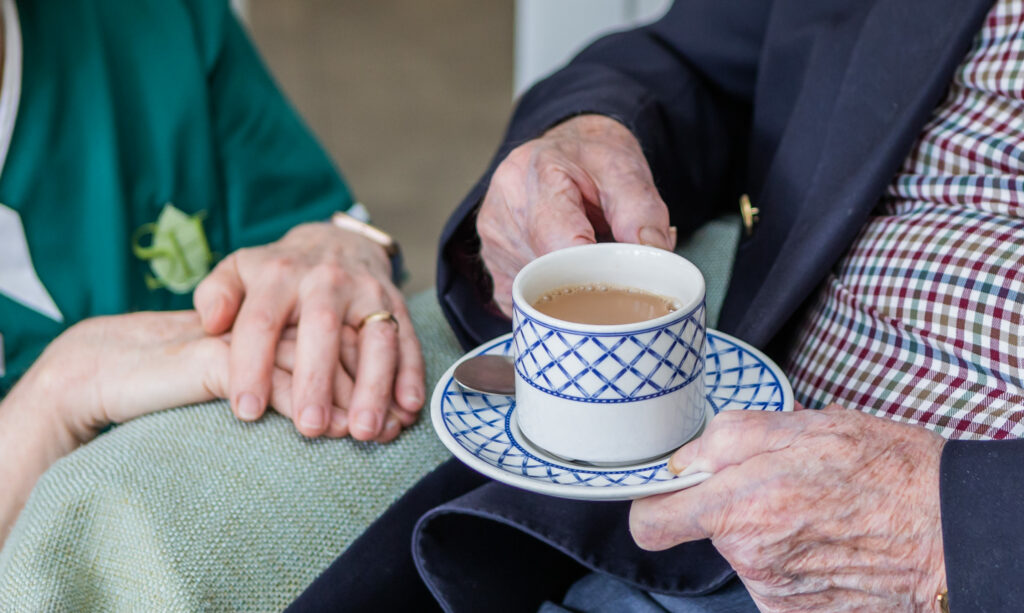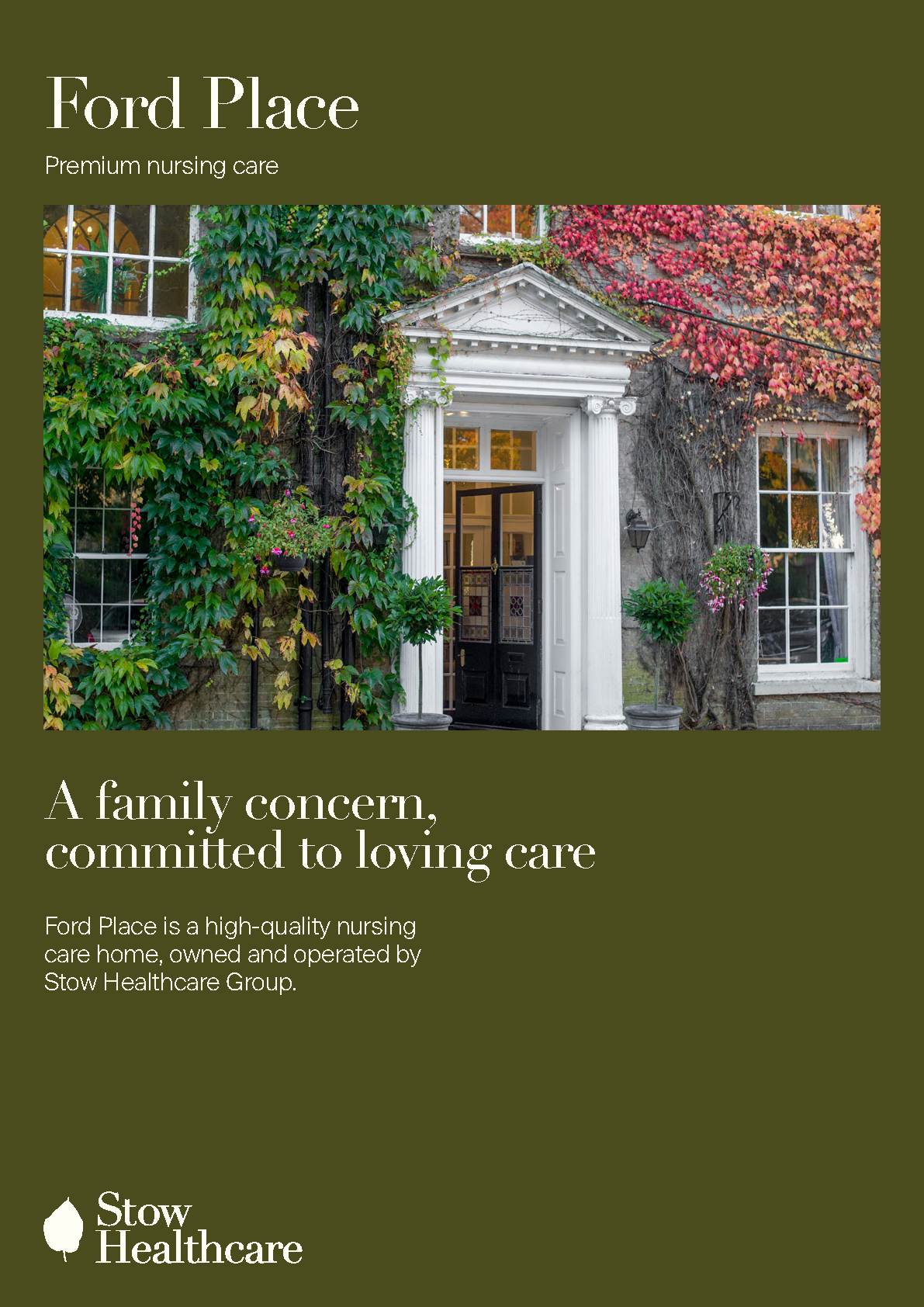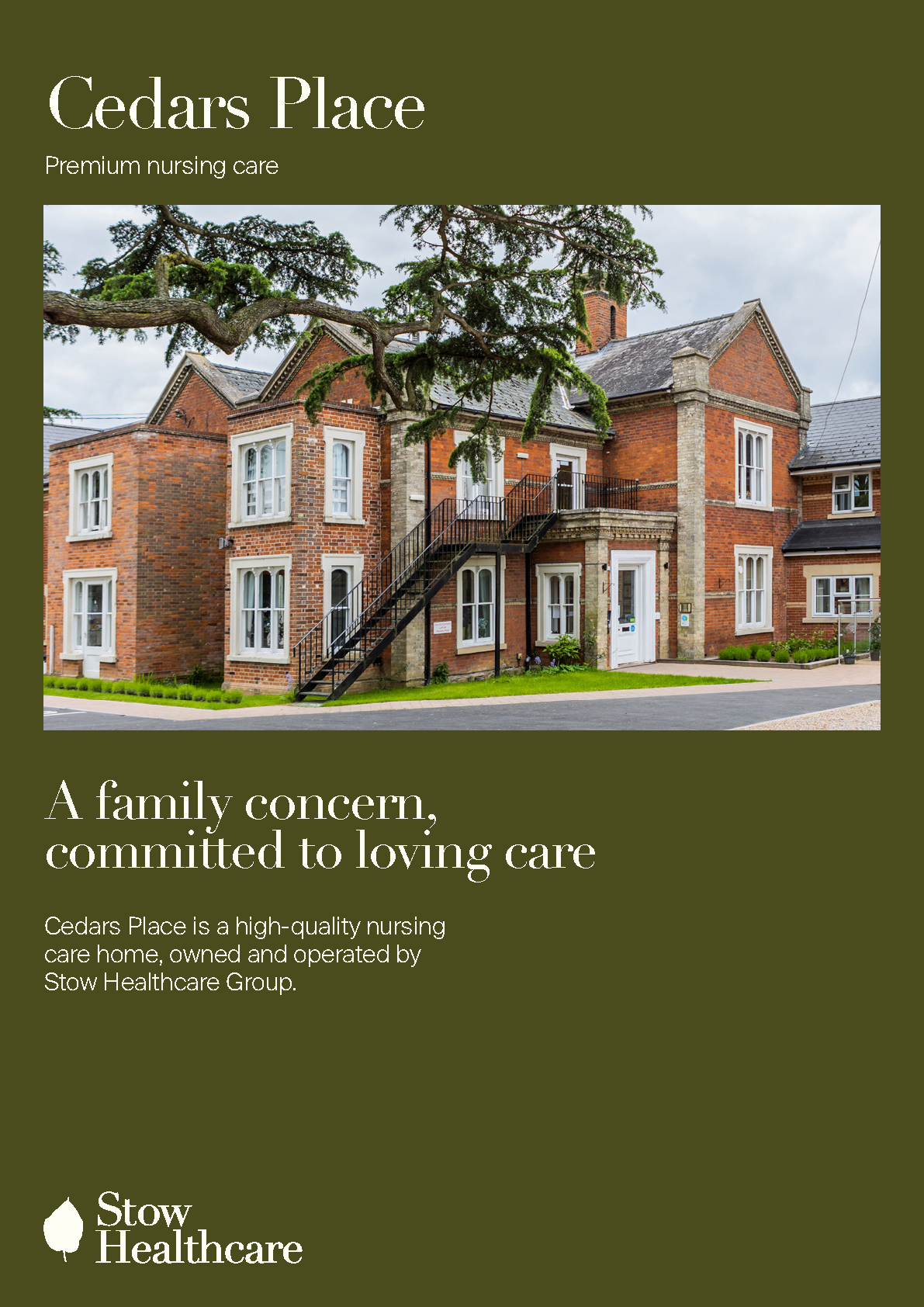Admissions Enquires

Stow Healthcare, supported by Care England, have been working with our staff, our residents and their families to promote decaffeinated hot drinks in our care homes. To read our report on this study click here.
Caffeine has a diuretic effect, impacting the bladder and bowel and increasing the urgency of using the toilet. From June 2023, we trialled offering decaf drinks as standard in our homes (whilst allowing choice for those who wanted to continue to drink caffeine). We wanted to see if there was a connection between caffeine and increased levels of falls in our residents.
Falls associated with frailty not only cost the NHS £4.4bn per year, but they can have a significant impact on the physical and mental well-being of older people.
89% of our residents chose to take up the offer of decaffeinated drinks in June, and this rose to 92% by the end of the trial. Over 6 months, we saw falls associated with going to the loo reduce by 35% across our care homes!
This project was made possible by the innovative work of Continence Specialist Nurse Sarah Coombes from University Hospitals of Leicester, where this project was first trialled in a hospital setting. Stow Healthcare is proud to be the first social care provider to take up the ‘Taste the Difference’ Challenge and we hope that other social care providers will be inspired to do the same with the aim of improving health and wellbeing outcomes for older people in social care.
Please do use the resources on this page to help with your own project and email us at enquiries@stowhealthcare.co.uk if you would like any support or advice. Remember, you don’t need to wear a white coat to be a scientist!
We believe that our residents should receive the best care possible in an idyllic, well-resourced, supportive and safe environment.

| Cookie | Duration | Description |
|---|---|---|
| _GRECAPTCHA | 5 months 27 days | This cookie is set by the Google recaptcha service to identify bots to protect the website against malicious spam attacks. |
| cookielawinfo-checkbox-advertisement | 1 year | Set by the GDPR Cookie Consent plugin, this cookie is used to record the user consent for the cookies in the "Advertisement" category . |
| cookielawinfo-checkbox-analytics | 11 months | This cookie is set by GDPR Cookie Consent plugin. The cookie is used to store the user consent for the cookies in the category "Analytics". |
| cookielawinfo-checkbox-functional | 11 months | The cookie is set by GDPR cookie consent to record the user consent for the cookies in the category "Functional". |
| cookielawinfo-checkbox-necessary | 11 months | This cookie is set by GDPR Cookie Consent plugin. The cookies is used to store the user consent for the cookies in the category "Necessary". |
| cookielawinfo-checkbox-others | 11 months | This cookie is set by GDPR Cookie Consent plugin. The cookie is used to store the user consent for the cookies in the category "Other. |
| cookielawinfo-checkbox-performance | 11 months | This cookie is set by GDPR Cookie Consent plugin. The cookie is used to store the user consent for the cookies in the category "Performance". |
| elementor | never | This cookie is used by the website's WordPress theme. It allows the website owner to implement or change the website's content in real-time. |
| viewed_cookie_policy | 11 months | The cookie is set by the GDPR Cookie Consent plugin and is used to store whether or not user has consented to the use of cookies. It does not store any personal data. |
| Cookie | Duration | Description |
|---|---|---|
| CONSENT | 16 years 3 months 3 days 21 hours | YouTube sets this cookie via embedded youtube-videos and registers anonymous statistical data. |
| Cookie | Duration | Description |
|---|---|---|
| IDE | 1 year 24 days | Google DoubleClick IDE cookies are used to store information about how the user uses the website to present them with relevant ads and according to the user profile. |
| test_cookie | 15 minutes | The test_cookie is set by doubleclick.net and is used to determine if the user's browser supports cookies. |
| VISITOR_INFO1_LIVE | 5 months 27 days | A cookie set by YouTube to measure bandwidth that determines whether the user gets the new or old player interface. |
| YSC | session | YSC cookie is set by Youtube and is used to track the views of embedded videos on Youtube pages. |
| yt-remote-connected-devices | never | YouTube sets this cookie to store the video preferences of the user using embedded YouTube video. |
| yt-remote-device-id | never | YouTube sets this cookie to store the video preferences of the user using embedded YouTube video. |
| Cookie | Duration | Description |
|---|---|---|
| incap_ses_197_1339251 | session | No description |
| incap_ses_7227_1339251 | session | No description |
| incap_ses_9117_1339251 | session | No description |
| incap_ses_9218_1339251 | session | No description |
| visid_incap_1339251 | 1 year | No description available. |

